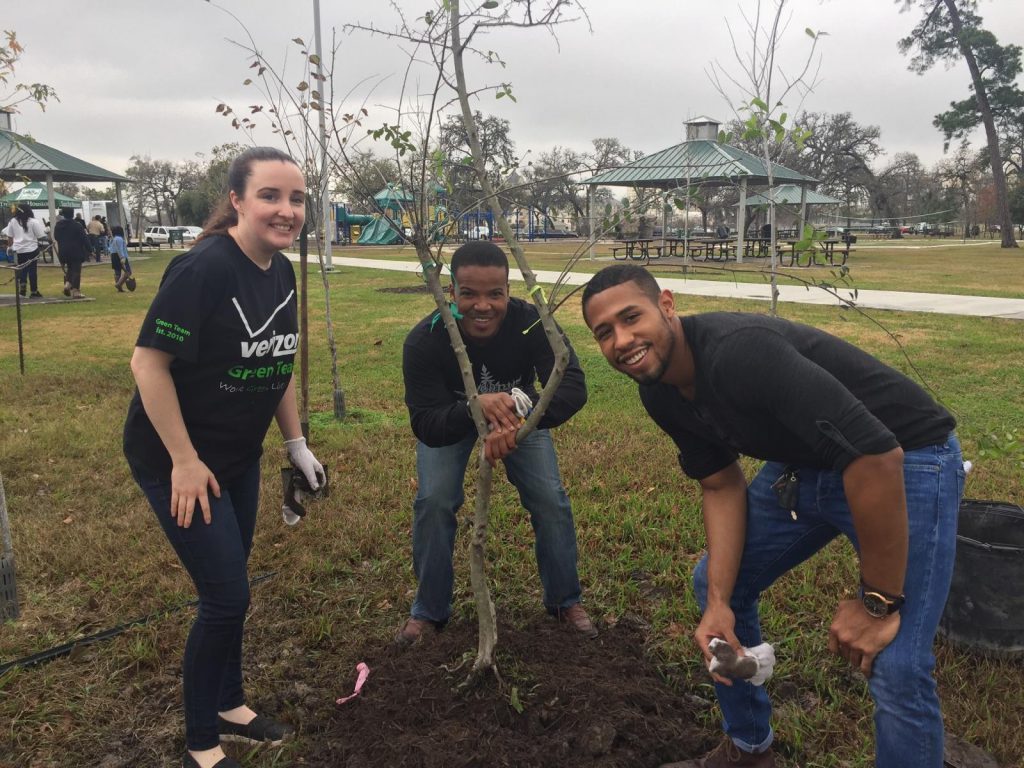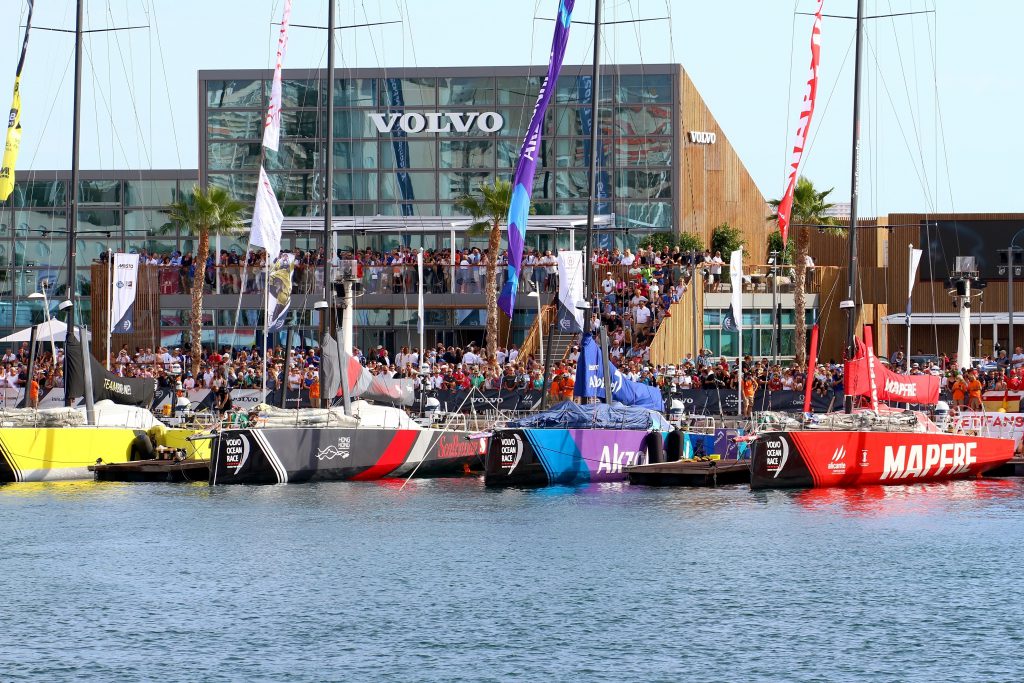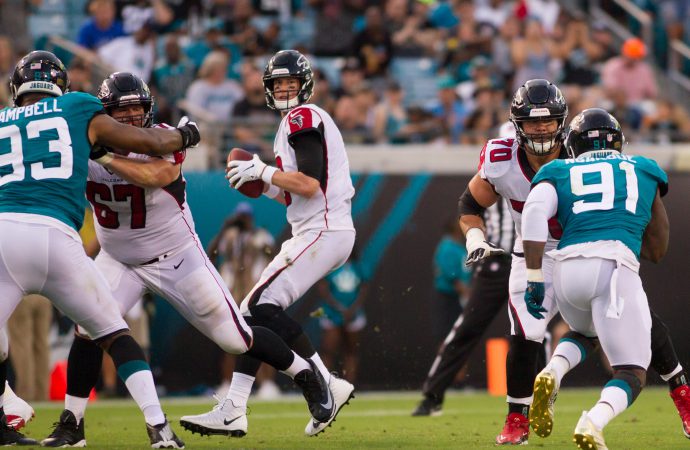A number of sports organisations have identified an opportunity to deepen relationships with commercial partners through shared sustainability projects. The Sustainability Report looks at a few examples
While the effort to treat sustainability with greater seriousness and urgency has become increasingly apparent in sport in recent years, the impact of this momentum on commercial sponsors cannot be overlooked either. Corporate partnerships are the financial lifeblood of sports clubs and organisations, and there is a strong business case to be made for engaging sponsors in sustainability projects.
A prime example of this is can be found in the US, at the world’s richest sports league. The National Football League’s (NFL) sustainability partnership with American telecommunications conglomerate Verizon began in 2013 as a means to enhance the league’s sustainability impact around its flagship Super Bowl game while also providing Verizon with an opportunity to expose a larger audience to its own sustainability efforts.
Forge closer ties
By adding a sustainability component to the partnership, the NFL has been able to foster a closer working relationship with Verizon: together, they have expanded existing projects, created new ones and made a positive impact in the cities that host NFL events and their surrounding communities. This includes the Super Kids Super Sharing scheme where more than 100 schools collect lightly used and new sports equipment, books and games for donation to thousands of local children in need. Verizon plays a significant role each year by making a sizable donation to a local shelter or youth programme. The telecoms giant also serves as a primary partner in the annual Community Greening Program at the Super Bowl, which offers grants to local organisations to help fund urban forestry, community gardens (image below), and pollinator habitat and native habitat restoration projects.
Then there’s the Super Bowl’s E-Waste Recycling Rally – a project conceived and funded by Verizon and done in partnership with the NFL. The expansion of Verizon’s portfolio of sustainability support includes projects at Pro Bowl and the NFL Draft.

“The process of developing real, hands-on, project-based partnerships is a challenge,” NFL Green director Jack Groh tells The Sustainability Report. “While corporate entities have been used to seeing sports simply as a terrific marketing opportunity, the NFL is the leading professional sports organisation in developing this new type of partnership that focuses on sustainability engagement with local communities that leave a measurable positive impact and provide community engagement for company employees, local neighbours, local organisations and the NFL.”
Use the exposure
From the sponsor’s perspective, the benefits of getting involved in sustainability through partnerships with sports organisations are obvious. Verizon’s commitment to sustainability extends to pledging to become carbon neutral by 2035 as well as planting two million trees by 2030 – and what better way to promote your sustainability credentials than through association with one of the world’s most popular sporting events.
“We believe the NFL/Verizon sustainability partnership has created a ‘value added’ component for Verizon’s existing sponsorship,” says NFL Green associate director Susan Groh. “This partnership allows them to take their existing sustainability platform – something they invest in throughout the year – and demonstrate their involvement in the communities they serve.”
“The enthusiasm sport naturally generates is like nothing else,” adds James Gowen, chief sustainability officer at Verizon. “People of all ages and backgrounds are already excited about the Super Bowl or the NFL Draft, and that enthusiasm carries over to the related events.
“We’re meeting people where they live and play, and we’re able to bring sustainability to them and make it fun. We’re showing them how to recycle, why it’s important to build pollinator gardens, plant trees and clean up parks – all while they’re involved in cheering on their favourite teams. It’s a win-win.”
“Nowadays, most of our discussions regarding new sponsorship are to do with sustainability and how we can bring purpose to the table and evaluate the impact”
Anne-Cécile Turner, The Ocean Race
This sentiment is echoed by Terry Cecil, chief executive and chief sustainability officer of the International Sponsor Council. As the trade association for sponsors, the ISC has been an early leader of sustainability in sport, having contributed to the development of the ISO 20121 sustainable event management system, with Cecil himself a member of the US development team.
And while the ISC initially encountered a degree of scepticism on the value of integrating sustainability in sponsorship, it is now being adopted across the industry. In Cecil’s view, this reflects the growing acknowledgement of sport’s potential to magnify the sustainability credentials of sponsors.
“Sport provides a massive reach, awareness and opportunity to engage fans through their passion,” he says. “It also delivers an opportunity to enhance brands by borrowing or aligning positive values. There is a huge opportunity for sponsors to promote their individual achievements in sustainability via sport and help educate fans on the benefits of committing to sustainability for the planet.”
Engage and develop
Cooperation with sponsors in the field of sustainability has delivered success on water as well as on land. During the most recent season of the Ocean Race in 2017/18, the around-the-world race launched its sustainability programme focusing on the issue of plastic pollution. In order to gain support for the scheme, it set up a sustainable sponsorship platform to engage with partners, brands, philanthropists, foundations and NGOs, including pure water provider Bluewater, leading to 400,000 fewer single-use plastic bottles being used at the race.
Thanks to the support of sponsors and partners, the #TurnTheTideOnPlastic campaign has been the subject of widespread acclaim across the sports industry, winning both the Social Impact and Cutting Edge Sport Awards at the BT Sport Industry Awards in April as well as the Public Awareness Award at the Boat International Ocean Awards in June. For Anne-Cécile Turner, head of the Ocean Race Sustainability Programme, the symbiotic nature of her organisation’s relationship with sponsors has been key to achieving these sustainability goals.

“The analogy with a sailing crew is quite apt in this instance,” she says. “We are the ones steering the boat and deciding the direction, while the partners are helping to regulate the sails. Nowadays, most of our discussions regarding new sponsorship are to do with sustainability and how we can bring purpose to the table and evaluate the impact.
“11th Hour Racing, for example, is the Sustainability Programme’s premier founding partner, and before the end of the last race they had already announced their intention to recommit. The next race starts in 2021 and I already have a full team working on sustainability initiatives supported by our partners, which is a good sign that this is something they care about and want to support.”
Find practical solutions
Turner recognises the practical importance of developing these partnerships, and has recently announced the launch of a series of 11 Ocean Summits – the first taking place in Genoa in September – with the aim of bringing governments, businesses, industry experts and sustainability influencers together to discuss solutions to the issues faced by the world’s oceans.
As a sustainability leader herself, she concludes by offering advice to other sports organisations on how to promote their own sustainability objectives through sponsor engagement.
“The first step should be to look at your own organisation and reflect on your core values and DNA,” she says. “That will help to identify the impact you can create and the influence you can have. Next, identify ways forward through practical solutions, and then associate internal and external stakeholders.
“It’s not necessary to wait until the end of the process to engage with sponsors and partners, because engagement is a journey, not a destination. Creating these collaborations will help the organisation to achieve the necessary impact.”
How else can sports clubs and organisations convince sponsors to invest in and engage with their sustainability programmes? Let us know in the comments below.










Leave a Comment
Your email address will not be published. Required fields are marked with *